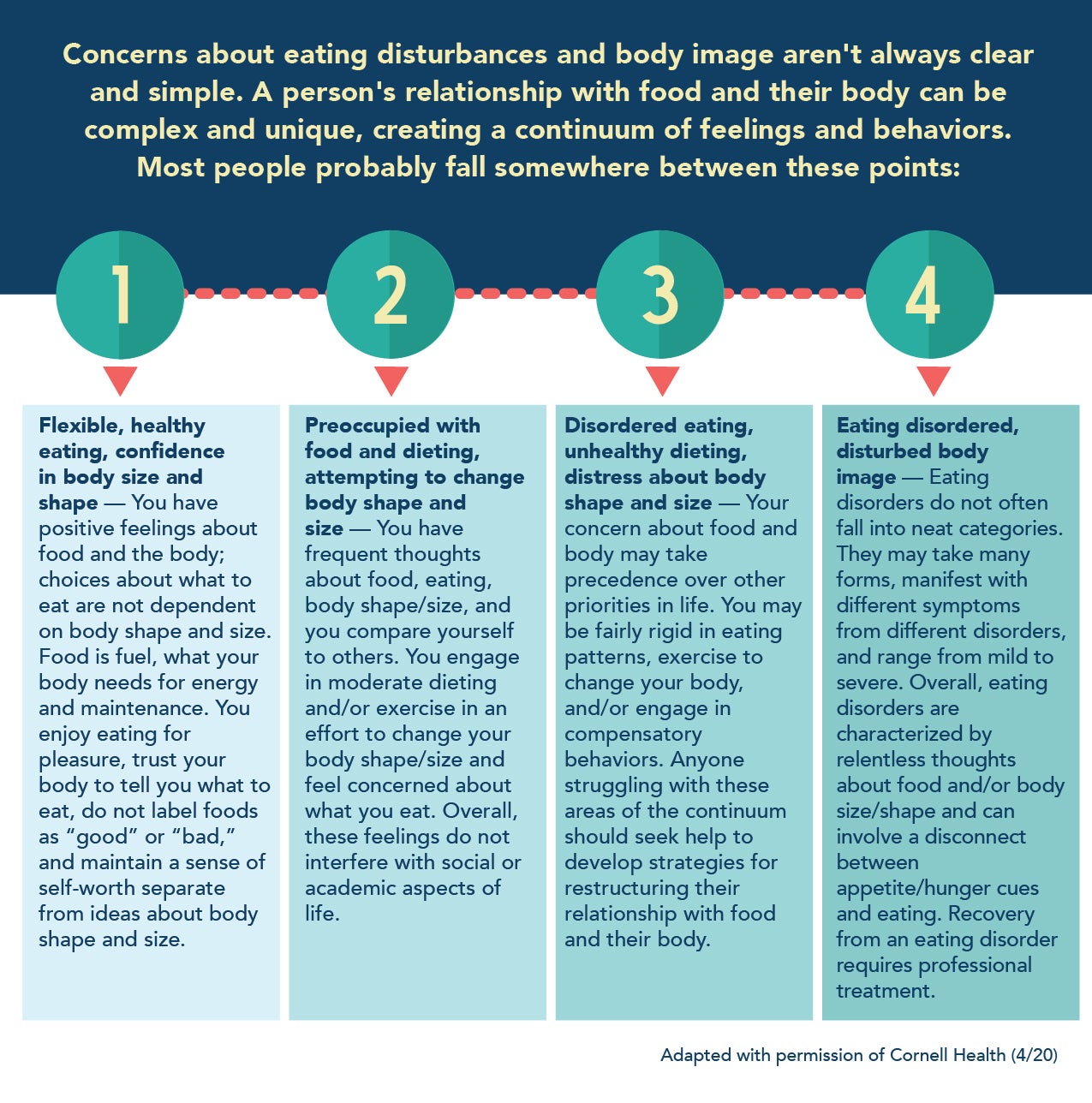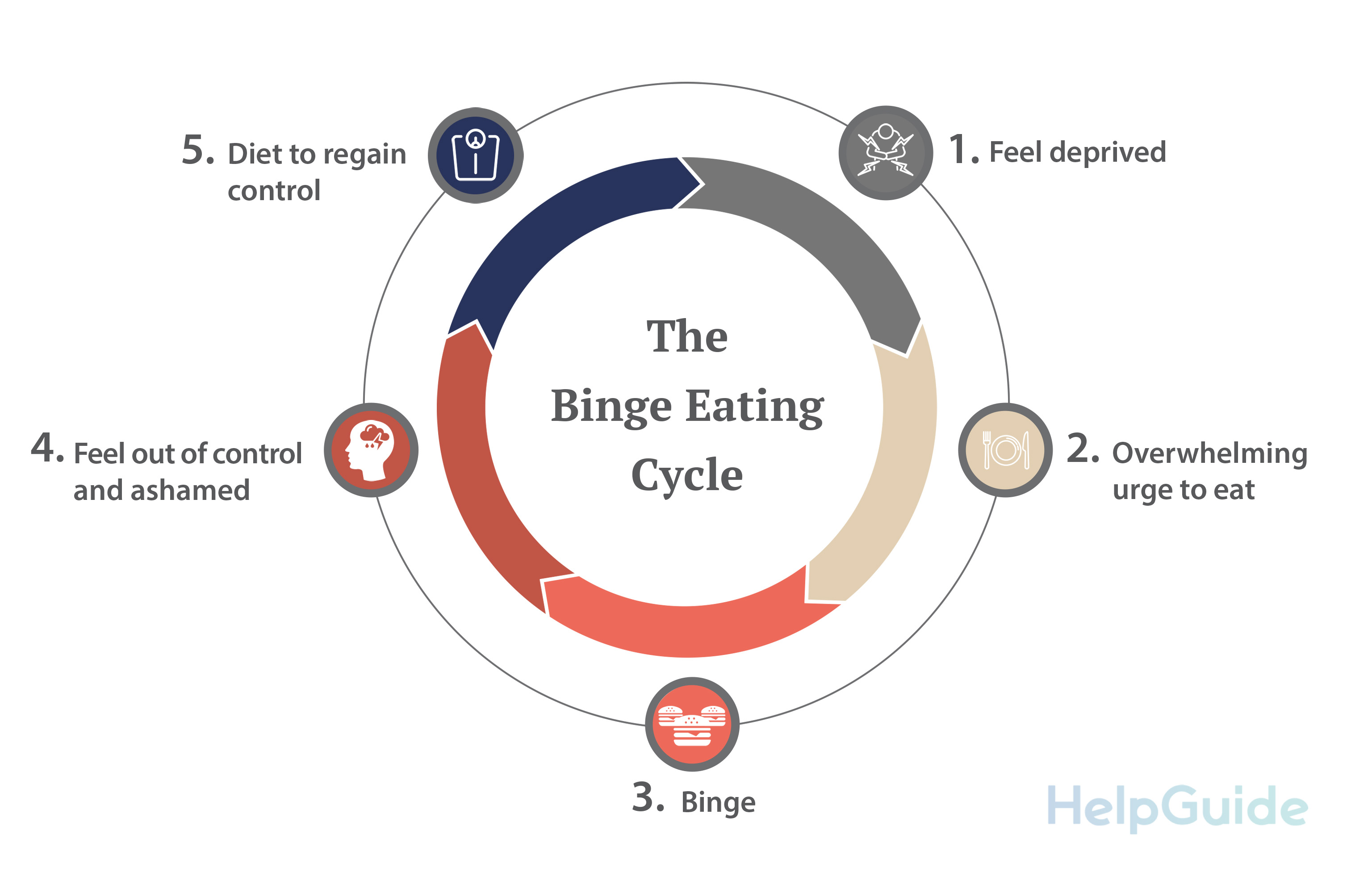The 20-Second Trick For Eating Disorder Recovery
Table of ContentsThe Greatest Guide To Eating Disorder RecoveryEating Disorder Recovery Can Be Fun For AnyoneSome Known Questions About Eating Disorder Recovery.Rumored Buzz on Eating Disorder Recovery
However, duplicated and also combined behaviours like these might be an indication of an eating condition and also should be kept track of. A person's mood as well as just how it is shown or shared (affect) can give some additional understanding into the chance that they are experiencing an eating problem. Indicators to keep an eye out for include: social withdrawal or seclusion; rapid changes in mood; boosted stress and anxiety; and/or high levels of control or obsessionality (which may or may not be connected to food or the body).For instance, a person can be angry even if their outside practices does not match what they feel (eating disorder recovery). While this may be the instance for all of us from time to time, this incongruence might be much more noticable in individuals with eating conditions. Adjustments in social behavior such as a person who was formerly social beginning to prevent going out with other individuals may be especially telling if the pattern includes many or every one of the person's social supports, and also if there is little else that would certainly much better describe the modification.
Similarly, these lists are not exhaustive, yet are planned to supply you with domain names for factor to consider. Noticing a few of the indications may not be a reason for issue. It's when these adjustments start to come to be traumatic or turbulent to the private or to individuals around them that closer attention ought to be paid.
You might be unsure about when as well as where to begin or what to state. These feelings are crucial and also might develop part of the discussion you have.
Eating Disorder Recovery - The Facts
Your primary objective, for instance, may be to just 'sign in' with your liked one to see if there is anything you can do to sustain them typically. Depending upon the instructions of conversation, you might after that have the ability to reveal concern regarding recent adjustments in practices or perspectives, consisting of those pertaining to food.
Bear in mind that these conversations require time, might need to be had numerous times, and might not constantly have a clear end result. This is perfectly okay; it is necessary to keep your very own expectations reasonable. Remember the adhering to indicate aid you assist in the discussion: Use non-judgmental as well as non-blaming language.
Offer the individual the chance to talk about their sensations if they want to. Allow them know you are there for them. The reality that you are ready to offer support if they want it can be handy for them to know, now or in the future. Attempt to avoid believing as if the individual is the eating problem.
Equally as a disease such as cancer does not define who a person is, an eating disorder should not be seen this way either. Gently motivate treatment. Attempt to get the person to their family doctor or one more certified wellness expert (such as a clinical psychologist) for an assessment. If you notice resistance, and if the person is not critically weak, be individual as well as consistent.
Facts About Eating Disorder Recovery Uncovered
Do not attempt to offer a simplified solution. Examples of what not to say include 'Just eat, you'll feel better' and also 'Simply don't fret about your body.' People with an eating problem why not find out more do fight with consuming and also do feel severely about their body, but the factor is to obtain them the assistance they require to recoup, which isn't as simple as suggesting that their thinking or behavior is wrong.
Condemning on your own for someone's eating condition or blaming that individual is purposeless to everyone. Stick to regimens as well as guidelines for all participants of a home, rather than singling out the person that could have an eating disorder.
Seek professional help. The finest time to look for specialist support is as quickly as you recognize or suspect something is incorrect. You can start by speaking with a basic professional, paediatrician or various other health and wellness professional you rely on to discover more concerning eating conditions, get like this their point of view, or create a plan for exactly how to aid obtain your loved one to see a specialist.

Some Known Details About Eating Disorder Recovery

Keep in mind that, while the course ahead of you can at times feel separating, you are not the only one in navigating this difficulty. Like your liked one, you too are finding out about dealing with the opportunity of an eating problem. Take a moment when you can to take a breath, process and also concentrate on establishing one foot before the various other.
We all require to eat, as well as most of us look ahead to consuming. Even more than nourishing our bodies, food is frequently a large component of getting with each other with individuals we love. Certainly, it's tough to imagine what life would certainly be like without the numerous social occasions we have actually constructed around sharing food.
Left untreated, eating disorders can result in significant consequences like body organ failureor also death. There are many different kinds of eating problems, and also some people may experience signs and symptoms of more than one condition. The most usual eating disorders are: A condition defined by deliberate efforts to significantly restrict food consumption (in spite of low body weight), often to the point of scientific hunger.